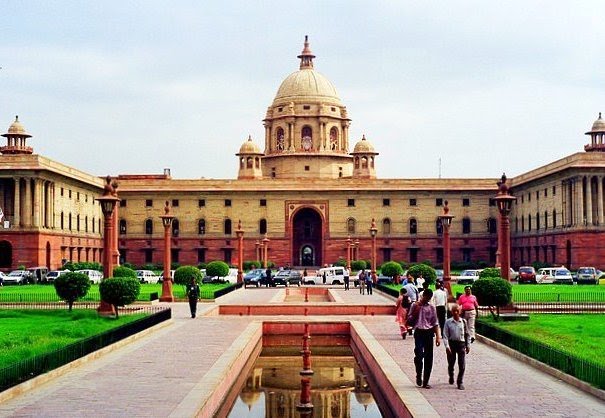Supreme Court Ruling Furthers India’s Fight Against Corruption

There’s a saying in Indian government – “प्रचा ही प्रभु है”. The aphorism “pracha hi prabhu hai” roughly translates to “the citizen is the king”, and reflects the idea that no office in the land should be higher than the office of citizen. Unfortunately, India’s political system fails to put this in to practice.
The world’s largest democracy received an abysmal score of 36/100 on Transparency International’s corruption index and continues to be rocked by political upheaval. However, it’s not all bad news – the new government is slowly but surely starting to clean up India’s political system.
Last week, India’s Supreme Court laid down orders for lower courts that will aid the fight against corruption. After last year’s decision ordering removal of members of Parliament (colloquially known as MPs) that have been convicted of major crimes from office, the Court took another step by directing that trial proceedings against politicians for corruption and other serious crimes must be completed within a year. This act can be used to purge the government of elected representatives who use their influence to avoid due process.
For those of us looking in on India’s political system, it seems odd that trials against politicians would be a widespread problem. However, for Indians it is a grim reality. More than 150 MPs out of 543 members of the lower house are currently facing charges, and watchdog agencies claim 1,460 politicians nationwide are involved in criminal proceedings. 15 MPs face at least one murder charge. One such example is Ramakant Yadav. This parliamentarian from Uttar Pradesh has had his murder case ‘pending’ for 25 years, under dubious circumstances and contradictory witness testimony. Many politicians use payoffs, horse trading, and the shady appeals process to drag out trials, all while staying in power. In the United States, these lawmakers would never get reelected, but in India these corrupt politicians are often painted as ‘dark knights’ who break the law to protect the people. Powerful businesses and organizations funnel money to these candidates to protect their own interests, despite what is good for the community as a whole.
For a government beset by scandals, this will be a step in the right direction. The Supreme Court plans to start expediting trials that have been going on for decades. It is forcing lower courts to convene to hear cases and report on causes for any delays in proceedings. Used in conjunction with last year’s ruling, not only will this bring justice to the corrupt lawmakers, but it will also force a lot of them out of government.
Unfortunately, the problem isn’t solved. Critics of the move claimed the Supreme Court overstepped its boundaries with such a ruling, since the decision was made by a two judge bench. Another problem is lack of adequate judicial infrastructure. Other critics claimed the decision didn’t go far enough. The judicial system can’t do anything if the politicians aren’t caught or avoid the courts by paying bribes, and electors can’t make a change if they aren’t informed.
This isn’t to say corruption is still a secret. Social media and investigative journalism have transformed it into one of the most important domestic political issues in India today. The new Aam Aadmi Party (roughly translates to Party of the Common Man) evolved out of a grassroots anti-corruption political movement and is now the majority part of the city of Delhi. Although the party is still in its developing stages, it has managed to increase transparency and offer sweeping reforms. Information is also becoming more readily available to the electorate, as voters turn to the internet to spread the message. The political watchdog agency Association for Democratic Reforms has made an effort to make candidates’ criminal, financial, educational, and professional information available on Facebook to increase transparency.
The next step in the fight against corruption will be monitoring election financing. Unlike the transparency afforded to the United States by the Federal Campaign Finance Laws set forth by the Federal Election Commission, India’s campaigns are practically unregulated. Parties recruit candidates who will win, and these candidates tend to be corrupt policymakers with suspicious ties to big business. Wealthy self-financed candidates aren’t clean either – their affluence is probably a result of bribery and racketeering, and they will use public office to further their interests. India’s Election Commission has proposed a series of reforms, but unsurprisingly, there doesn’t seem to be much support for these policies among lawmakers.
Corruption is a widespread and detrimental problem in India’s society, but through incremental measures such as the one approved by the Supreme Court last week, the system can start to purge itself of crime. There are going to be many roadblocks along the way, and it will be hard to cleanse the political atmosphere where payoffs and patronage are the party line. The change has to start with the individual – once people know what is happening, policy will follow suit.
[Image Attribute: Indian Supreme Court]




